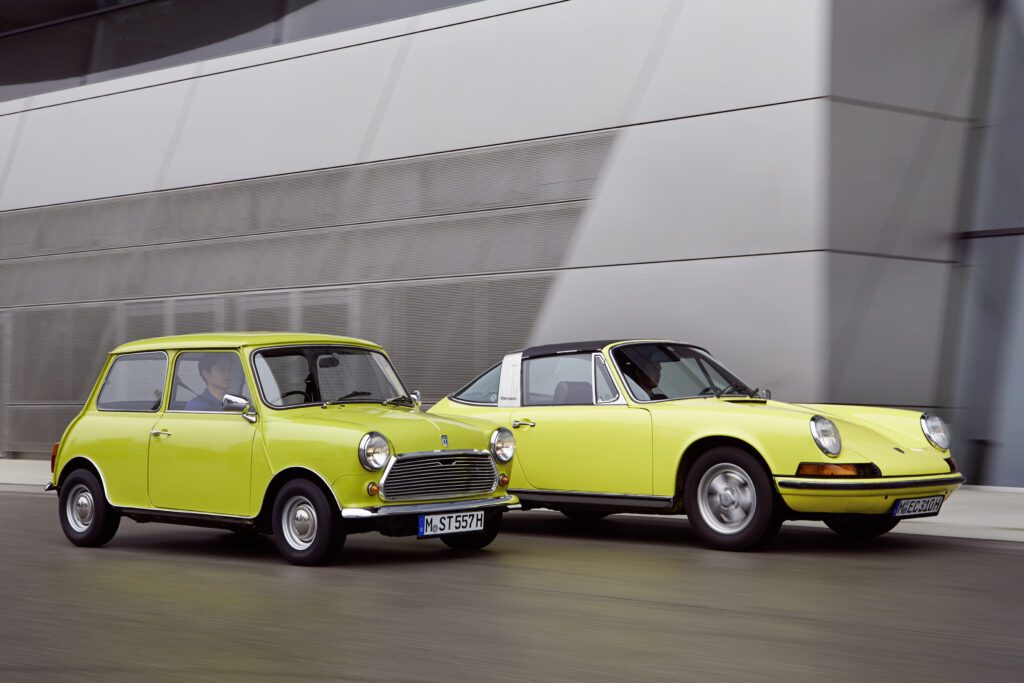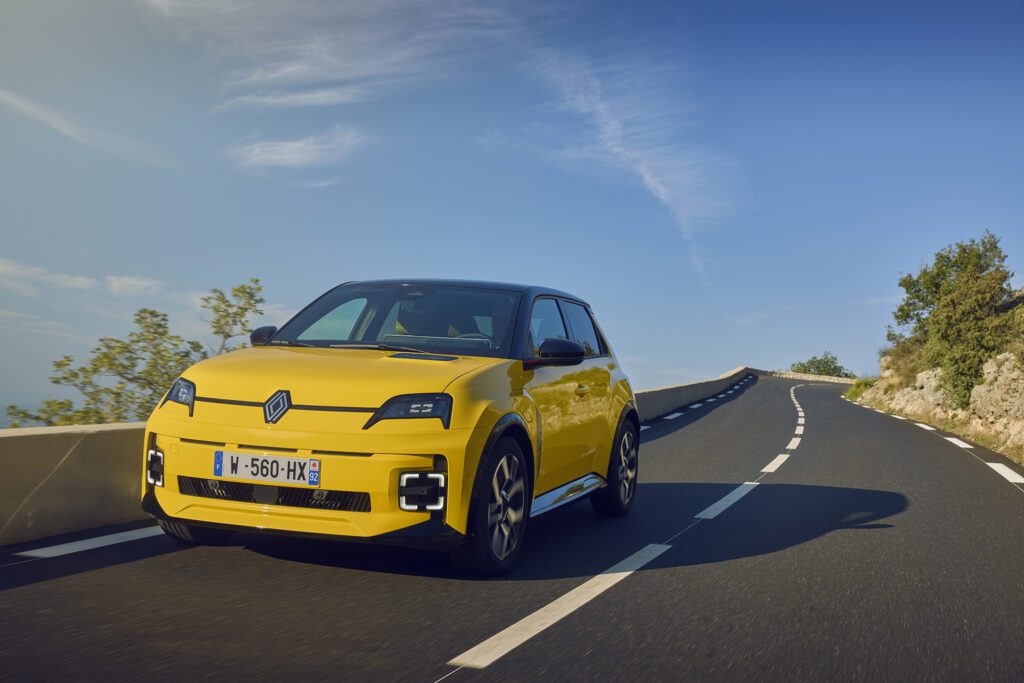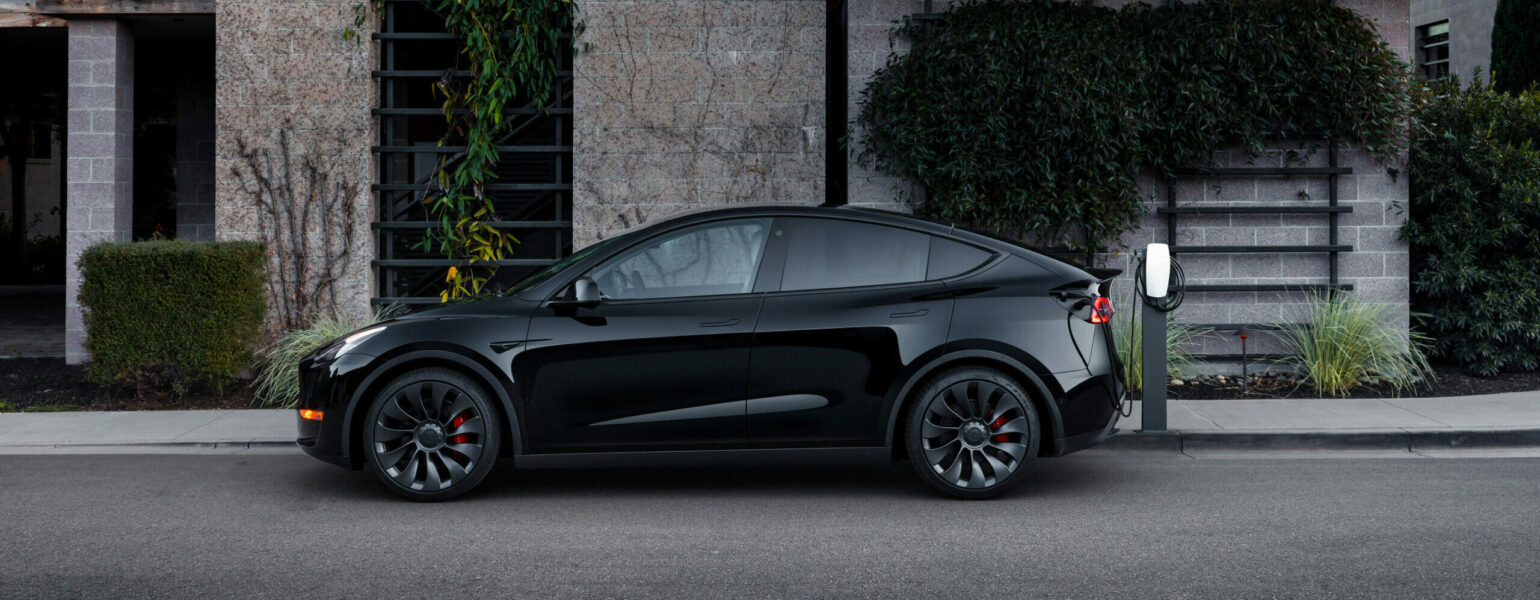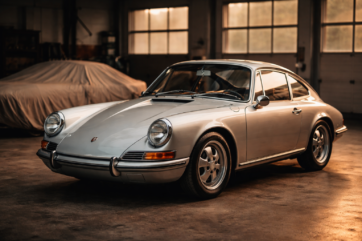
The Psychology Of Buying A Car
Other than buying a home, for most people a vehicle is the next biggest purchase a person makes in their lifetime. Just as you would with a property many of us have a certain wish list or number of features that any future car simply has to have and certain things you would rather it didn’t.
So other then necessity and the fact that a car is seen as essentially a mode of transport, what drives our buying decisions when the time comes to purchase your next vehicle, or indeed the motivation to buy the car you have currently?
Here we take a look at the psychology of purchasing a car and in particular 8 factors that usually determine the buying choices we make. You may not fall in to each category, but there is no doubt that they make up the psychology of why the majority of people are influenced in the cars they decide to buy.
1. Cars As Self-Expression
For many people, a car is more than a mode of transport, it’s a mirror of identity. The vehicle we choose often reflects how we see ourselves, or how we want others to see us. This might also not just be seen as a way of enhancing your status through the vehicle you want to drive, but also a type or brand of car you wouldn’t want to be seen in.
Not only does this apply to a particular brand or model of car, but could also be how it is powered, its age or the body style. The minimalist EV driver might value innovation, sustainability, and forward-thinking, embracing the latest technology as something they feel is either a part of moving forward or keeping up with the modern world.
The classic car enthusiast may be drawn to craftsmanship, heritage, and nostalgia, they might not be interested in the latest gadgets but more the styling, the memories and embrace a time when things were simpler and easier to repair or maintain yourself. The SUV owner might prioritise family, safety, and reliability, but also a sense of control and presence. Their want to be seen to be protective and thoughtful, perhaps more responsible means only a larger more practical car will do.

Psychologists call this symbolic self-completion, the idea that we use material possessions to complete or reinforce our self-image. Cars, being high-visibility and high-investment items, are especially potent symbols no matter what you are trying to portray about you and your buying decision. We see the purchase as an extension of ourselves and whether that means you are trying to be as outlandish or flamboyant as possible, or as reserved and discreet as you can, it says a lot about you as the driver.
Cars aren’t just machines to get from A to B. We buy them to say something about our lifestyle, our values, our success, or our aspirations. This is exactly the reason why marketing campaigns often focus less on features of the cars themselves but the way it is intended to make you feel or the details that are likely to matter to that type of car buyer. Whether those feelings are freedom, power, elegance, practicality, eco-friendly credentials or perhaps adventure.
2. Status & Social Signalling
Whether you intend it to or not, status plays a role in your car buying decision. Whether it’s the understated luxury of a Mercedes-Benz or the head-turning styling and desirability of a Ferrari, cars can definitely be powerful social signals.
This isn’t just purely for vanity though. From an evolutionary psychology perspective, humans are wired to seek social standing. In modern society that often translates into something called ‘conspicuous consumption’, or buying things that signal implied wealth, success or power.
But status doesn’t necessarily mean something that you are trying to show off. For some it may be about exclusivity and rarity, for others it’s about subtlety and refinement. Even choosing a modest, eco-conscious car can be a form of status signalling, highlighting your values of responsibility and even perceived intelligence.
3. The Nostalgia Effect
Most of us know the feeling of a wave of emotion when you see a car from your childhood. That’s nostalgia at work, a powerful psychological force that can shape our buying preferences in surprising ways.
Nostalgia taps into our emotional memory, often linked to our formative years and the experiences we had when we were a child. Maybe your parents drove a Volvo estate on family holidays, or you had a poster of a Porsche 911 on your bedroom wall. These memories create emotional anchors that influence our adult choices.
As we get older and have the ability to make our own purchasing decisions, it is often the vehicles from our childhood that are always at the back of our minds as a ‘dream’ purchase. Whether this is a poster supercar we had on our walls or the cars you used to see driving around and lust after that you wish your parents had bought. The same reason that in recent years that values and demand of ‘Fast Fords’ and 1980’s or 1990’s performance cars have risen so dramatically.

This is why retro-styled cars, like a modern-day Ford Mustang, a MINI or the new Renault 5, resonate so strongly, especially with those in a certain age bracket. Their ability to blend modern performance and convenience with emotional familiarity and memories of the models that were around when you were younger, means that they have instant appeal.
Nostalgia is not just sentimental, it is also motivational. It can drive us to seek comfort, connection, and continuity in a fast-changing world. And for many, owning a car that evokes the past is a way of holding onto something meaningful.
4. The Allure Of Technology & Innovation
For technology enthusiasts, cars are more than machines, they’re gadgets on wheels. From self-driving features to augmented reality dashboards, modern vehicles are increasingly defined by their digital ecosystems and what they can offer to the driver and passengers.
This appeal is rooted in a psychological trait known as neophilia, the love of novelty or new things. People high in neophilia are drawn to innovation, experimentation and things that are cutting edge. For them, a car isn’t just a tool to get around, it is a playground of possibilities to keep you and your passengers entertained and impressed at just what it can do or offer you.
Electric vehicles particularly appeal to consumers with this mindset. They represent not just a shift in the amount of technology that a vehicle can have integrated into it, but a vision of the future with cleaner, smarter, and more efficient ways to travel. It also offers a way to not only save running costs through smarter purchasing but also embracing the future of what car ownership is looking to become.
5. Practicality & Peace Of Mind
Of course, not every car decision is emotional. For many buyers, the key drivers are functionality, safety, and reliability. This is especially true for those with families, commuters and those with specific lifestyle needs. For many years companies who prioritised safety such as Swedish manufacturer Volvo, were often seen as dull and boring, yet these days the brand has become one of the coolest and well respected on the road.
But despite what you might think, even practical choices are influenced by psychology. We tend to favour brands we trust, models that feel familiar, and features that reduce uncertainty. Whether this is things like high safety ratings or long warranties, we can all name brands that are synonymous with those types of reputations.

There’s also the concept of anticipated regret, we often choose cars that minimise the chance of future disappointment. That is why everything from reliability rankings and customer reviews to reputation for depreciation or running costs for a make or model carry so much weight. How many times have you discounted a brand or model because of the perceived reputation, bad reviews or conversations you have had with a friend or colleague about a negative experience they had when they owned one.
6. The Role Of Cognitive Biases
Our brains are full of shortcuts, known as cognitive biases, that influence how we make decisions often without us realising. These may evolve from things we’ve heard, seen or read that subliminally make up our minds in our head or sway our buying decisions.
In terms of buying a car this can fall into the following categories:
– Confirmation bias: Once we like a car, we tend to seek out information that supports our choice and ignore anything that contradicts it. If you’ve always wanted a particular brand or model you are unlikely to listen to anyone tell you if they had a bad experience or that it has a negative reputation.
– Anchoring: The first thing we hear about a brand or type of car, even if it is unrealistic, can shape our perception of how we feel going forward. Whether this is a reputational matter, a performance characteristic or a historic opinion, the first thing you hear often sticks in your mind from then on. This can also lead to the previous point where any later information is unlikely to sway your decision either way.
– Endowment effect: We tend to overvalue things we already own or are close to owning. That is why test drives can be so persuasive, because you are likely to get to that stage once you have already made your mind up about a certain vehicle. You are more likely to overlook something negative during a test drive if you have decided that you want to buy the car.
– Loss aversion: We are more motivated to avoid losses than to achieve gains. This can make us stick with a familiar brand or model, even if better options exist. This has been even more relevant since the emergence of new EV brands to the marketplace and also affects things such as finance decisions and where we buy our cars from.
Understanding these biases can help us make more informed, reflective decisions and avoid being swayed by impulse or illusion. Just because you have always done something one way, doesn’t mean it is the way it perhaps should be done and exploring your options first is often a better way to approach things.
7. More Than Just An Object
Beyond identity and emotion, cars are deeply tied to our daily lives. They shape how we move, where we go, and what we can do. That’s why lifestyle alignment is such a crucial factor when we ultimately make our buying decision. We often have a need to feel connected to the car whatever the reason for its purchase has been.

This applies as much for a city dweller prioritising compact size and fuel efficiency as it does for a rural driver needing off-road capability and durability, and a growing family looking for space, safety, and flexibility. The best car for you is not just the one that looks good, it is the one that fits your rhythm, your needs, and your future plans.
This can often build a greater connection to the vehicle you are driving as you feel you have made an informed decision based on the function you need the car to perform. A greater sense of satisfaction is brought from the fact that the car is doing exactly what you needed it to do that influenced your buying decisions.
8. The Buying Experience
The car buying journey itself is a psychological experience. From browsing online to stepping into a showroom, every stage taps into a broad range of emotions from excitement and anxiety to anticipation and satisfaction. It is another reason why at Oracle Car Finance we aim to take the stress and hassle out of the car finance side of things, so that you are free to experience the joys of your new car without worrying about that side of things.
It is why for us, and hopefully also for the dealership or private seller, the customer experience matters so much. A supportive, transparent, and personalised approach can make the difference between a stressful purchase and a joyful one. A car that is completely fit for purpose and the right buying decision can quickly feel like a wrong one if the experience is a negative one.
And while finance is part of the equation, it’s not just about numbers, it is about enabling dreams, managing expectations, and building confidence in a big decision. We have always been willing to go the extra mile for our customers to ensure that from our side of things, the process has been a simple and as smooth as possible.
What Drives Our Customers?
We understand that purchasing a vehicle is a human act and requires a personal touch as much as possible. It is about much more than the features and statistics of the car you are buying, even the monthly payments and the interest rates, but about minimising stress and hassle to enable you to fund your dream purchases.
By understanding the points above you can assess what drives you in your vehicle purchasing decisions and we can ensure that your car finance aligns with that too. Our friendly experienced Account Managers are here to inform you and share their knowledge as much as you need to ensure that every car buying decision is the right one that works for you and your circumstances. Our helpful Car Buying Guide may also help ease your car buying process and help you find just what car is right for you and the purpose you are looking to purchase it for.
With over 2,900 Trustpilot reviews with an overall rating of 5 out of 5, passing the £2billion milestone of vehicle funding for our customers, and as five-time winners of the Best Specialist Car Finance Provider award, you too can find out why thousands of people trust us time and time again to find a smarter, tailored funding solution when looking for your next dream car.
Make sure you follow us on Instagram, LinkedIn and Facebook to keep up to date with what’s happening in the market and to see some stunning photos and videos of the amazing cars we fund.










